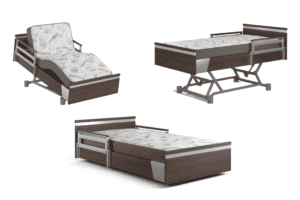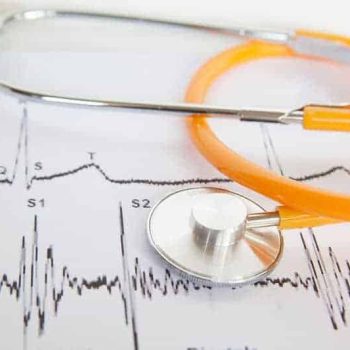

Home Medical Supplies
What Medical Supplies Are Needed for Home Hospital Care?
SonderCare Learning Center

SonderCare Learning Center
Deciding to care for a patient at home is not easy. You will need to consider having, among other things, home hospital supplies, established emergency systems, as well as sleeping and mobility modifications, to ensure that your home hospital care is viable.
Quality home hospital supplies are the cornerstone to your loved one’s recovery. These medical items help home health caregivers manage acute and chronic medical conditions and give the patient proper care and supervision.
Nowadays, it’s fairly easy and convenient to get basic home medical equipment, such as oxygen supplies, IV, or NG tube supplies. Online stores such as sondercare.com have an ever growing home medical supply inventory. They can also come straight to you if you order from the right suppliers. Even some larger equipment items like our line of home hospital beds can be delivered and installed conveniently by delivery personnel.
You can avoid unnecessary trips to specialist care by getting the correct medical inventory but it also helps you enjoy the added benefit of saving plenty of money shopping in advance. Unfortunately, people often overpay for home medical items because they get them in a panic or when they’re ill prepared. When health conditions eventually come up, you will also think less about “what ifs” and have more conviction in your ability as a caregiver.
If you are in the process of procuring medical equipment and home health supplies for your patient, one of the essential items is obviously a first-aid kit. But beyond these basic medical kits there are so many other essential items:
To accompany your first-aid kit, you should also have OTC medications that can enable you to administer immediate care. Notable OTC medications and remedies include aspirin, aloe vera gel, anti-diarrhea medicine, calamine lotion, antacids, antihistamines, cough medicines, and laxatives.
You may also include OTC pain relievers, such as acetaminophen and ibuprofen. Remember, do not give ibuprofen to patients with respiratory conditions as it may worsen the symptoms, and do not give aspirin to children, hemophiliacs, or adults taking blood-thinning medication. And we urge you to follow doctor instructions for every medical decision you are about to undertake.
If you have a long-term patient under your care,, a basic medical kit will not be enough to meet all their needs. You may need to consider getting specialized home hospital supplies that can enable you or home caregivers to give the patient the care they need in the comfort of their home.
Some essential pieces of equipment to consider include:
Purchase these items from hospital-approved suppliers to ensure that they are in good condition. These suppliers will deliver the items straight to your door, making it easy for you to receive them, particularly if you do not have a loading dock.
Speak to your health professional to get supplier recommendations.
Most patients who need body weighing scales are likely obese; you might want to upgrade to a unit that can take a weight of up to 1000 pounds. You may also do well to consider weighing scales with an anti-microbial coating to limit cross-contamination.
Other auxiliary home hospital supplies that may not have a direct medical function, but can make caring for your patient easier include:
The range of medical equipment now available for use in non-clinical environments ranges from simple such as the ubiquitous first-aid kit, to the complex, such as ECG units.
While some devices can be used outside the hospital or hospice by professional home health caregivers, many of these devices are only suitable for hospital and hospice use.
As such, home health caregivers must carefully handle these devices to ensure they are effective, safe, and usable in the home to care for every type of patient. You should also follow manufacturer instructions to avoid harming the patient and damaging the equipment.
Be sure you check your first-aid kit regularly to replenish used supplies and replace expired products or batteries.
Manufacturers of care products and high-quality medical goods such as home hospital beds, which is the speciality of the team here at SonderCare, are now more available than ever to help you order online and speak to you directly about your needs. Our team works hard to make sure that everyone searching for the best home medical products is given all the information they need to make informed decisions about their home care needs.
If you’ve got a question about securing key home medical supplies and equipment such as beds, chairs and hospital-style tables, reach out to us immediately so we can do what we can to get you and your family on the road to recovery.
Doctors note/order, Medicare/Medicaid, regional and national medical insurance programs, local lenders and seeking out deals or seasonal savings for out of pocket purchases are the ways that people typically pay for their home hospital supplies.
Common medical supply items include consumable medical supplies (also referred to as disposable supplies), materials and tools for diagnosis and testing, patient monitoring equipment, supplies for acute care, surgical supplies, supplies for home health care, supplies for diabetics, electronic and life-saving equipment, as well as hospital beds and furniture.
Devices and materials ordered for daily or extended use by a health care provider is considered DME (Durable Medical Equipment). Examples of this include: devices for oxygen, wheelchairs, leg braces or diabetic testing tools.
Start Your Home Hospital Care With SonderCare
Are you recently discharged from hospital, experiencing mobility issues, or in need of palliative or senior care? Enjoy a smoother recovery and get the luxury you deserve by choosing our home hospital products. Contact us today to discuss home hospital beds, mattresses, stand assist chairs and other accessories to make your home hospice perfect for a truly comfortable experience.
Are you looking for the most recent articles on buying home medical supplies? Browse our latest resources below and let us know if you have any questions. We’re here to support you as you embark on your road to home medical care.
Seeking The Best Care For Your Loved One?
Browse North America's Luxury
Home Medical Supplies
Inventory